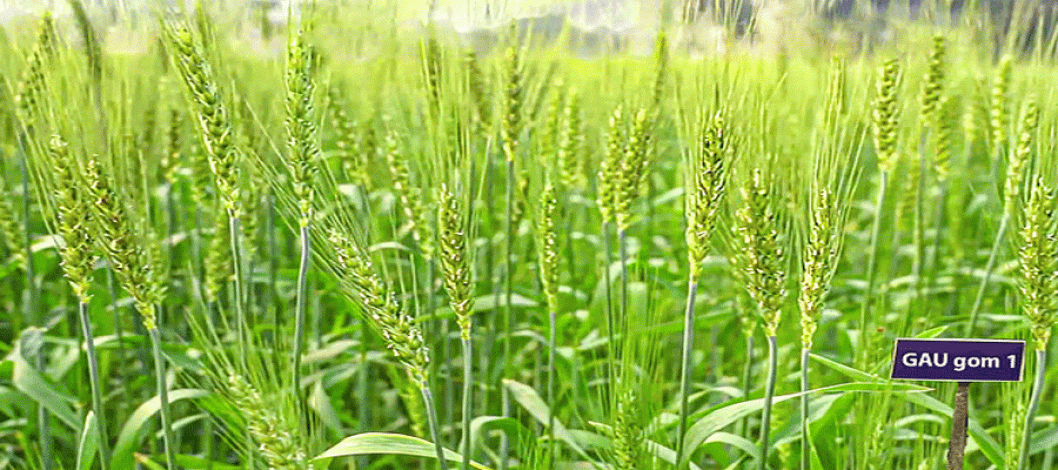
The highly salt-tolerant 'GAU Wheat 1' field was developed at Gazipur Agricultural University, Bangladesh. Photo: Collected
The Department of Agricultural Science of Gazipur Agricultural University has developed a new variety of highly salt-tolerant wheat, ‘GAU Wheat 1’. This is the first variety of wheat in the country with high salt tolerance. This information was given by Mohammad Akabbas Uddin, Assistant Registrar of the Public Relations Department of the university, in a press release on July 3, 2025.
‘GAU Wheat 1’ was developed through research led by Professors Mainul Haque and Mosiul Islam of the Department of Agricultural Science. According to university sources, the advanced wheat variety is salt-tolerant, high-yielding, and rich in protein. With this, the total number of varieties developed by the university has reached 91, which has opened the door to a new possibility in agriculture in Bangladesh.
In this regard, Professor Mosiul Islam said, ‘The development of GAU Wheat-1 is the result of our long-term research, experiments, and field experience. We started working on developing this wheat variety to overcome the limitations of crop production in the coastal and saline areas of the country. It can survive in saline environments and yields relatively high yields, which is beneficial for farmers.’
Talking to the researchers, it was learned that after a long period of research and yield testing, it was proven to be a salinity-tolerant and high-yielding wheat by conducting field trials in farmers’ fields in the southern part of the country from 2021 to 2023. Later, satisfactory results were obtained in the proposed yield tests in 6 places in the country under the overall supervision of the Seed Certification Agency. In view of this, the National Seed Board gave clearance to GAU Wheat-1 on June 17. The high protein in this wheat helps in body building and repair, energy supply, and increases the effectiveness of the immune system, thereby preventing diseases. On the other hand, due to the sufficient amount of glutenin, it can be easily absorbed by the body as it is high in protein and low in fat. Lab tests of DUS with 13 important characteristics have proven that it has different qualities from ordinary wheat.
If this wheat seed is sown after harvesting paddy in the Aman season, production can be obtained in 95-100 days. Farmers can benefit from getting more yield in a short time. On the other hand, since this wheat plant is large, its stem is thick, and the number of grains is high, it can produce more straw, which will play an important role in meeting the food needs of livestock. The yield of this excellent variety is 4.5 tons per hectare in normal soil and 3.75 tons in saline soil. Since it is salt-tolerant, it can effectively absorb water and nutrients by controlling the level of sodium chloride in the human body. In addition, due to its climate tolerance and resistance to diseases and insects, it is a suitable and profitable variety for cultivation in the diverse environments of the country.
Source: Online/GFMM
Comment Now